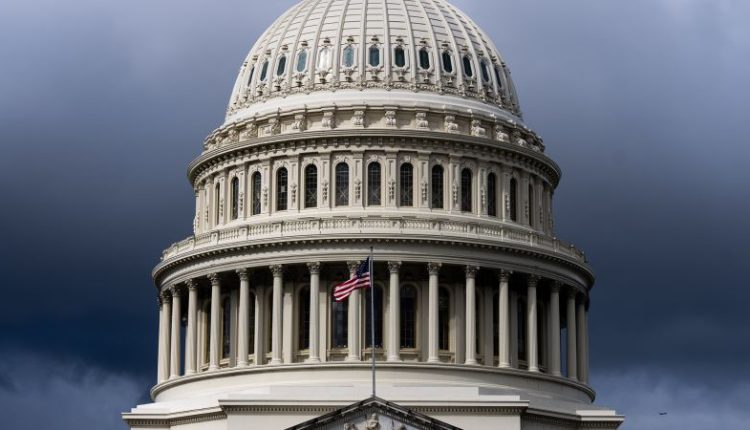The United States’ credit rating could come under pressure if the government shuts down, Moody’s Investors Service cautioned Monday.
A shutdown would be “credit negative” for the US sovereign, according to a Moody’s note.
“While government debt service payments would not be impacted and a short-lived shutdown would be unlikely to disrupt the economy, it would underscore the weakness of US institutional and governance strength relative to other AAA-rated sovereigns that we have highlighted in recent years,” Moody’s wrote.
“In particular, it would demonstrate the significant constraints that intensifying political polarization put on fiscal policymaking at a time of declining fiscal strength, driven by widening fiscal deficits and deteriorating debt affordability.”
The federal government could shut down on October 1 if Congress is unable to pass a federal spending bill.
Moody’s is the only one of the three major credit rating agencies to assign the United States an outstanding rating of AAA. Standard and Poor’s downgraded the United States in 2011, following the debt ceiling standoff then. In August, Fitch Ratings knocked America’s credit rating down to AA+ after the most recent debt ceiling debate.
“Looking ahead, weaker fiscal policymaking that leads to persistently high fiscal deficits and higher than expected interest costs would put pressure on the US rating or outlook,” Moody’s wrote.
The economic impacts of a shutdown would be largely concentrated in areas that have a significant government presence, and the full effects would be wholly dependent upon how long it were to last, according to the note. Most of the economic impacts, especially on spending, would be temporary and reversed once the government reopens, Moody’s added.
“If it is short-lived, it would have minimal effect on the broader economy and our GDP growth forecasts,” Moody’s wrote. “The effect would be more pronounced if the shutdown was protracted and it impaired national business and consumer confidence or triggered an adverse reaction in financial markets.”
The most direct effect of a shutdown would be through lower government spending as well as reduced consumption from affected federal workers and government contractors, Moody’s noted.
It’s not the first time the government has been on the brink of a shutdown. The government shut down for 35 days, a record length, from December 2018 to January 2019 amid a congressional stalemate over funding for then-President Donald Trump’s border wall.
The effects of delayed paychecks and cut hours on federal workers as well as stalled contracts cost the economy an estimated $11 billion, the Congressional Budget Office reported.
A shutdown this time around could mean a $140 million-a-day hit to the US travel industry, according to the US Travel Association.
Additionally, a government shutdown could leave investors, economists and, most importantly, policymakers at the Federal Reserve, flying blind. The Bureau of Labor Statistics has said a shutdown would delay the release of crucial data on inflation and employment. That would force Fed officials to make major decisions on interest rates by relying on data produced in the private sector.
— CNN’s Betsy Klein and Matt Egan contributed to this report
Read the full article here

